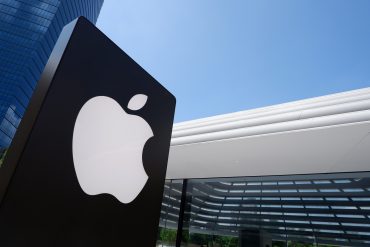
Apple Overhauls EU App Store Rules to Avoid €38 Billion Fine
6 minute read

App Store developers gain direct payment options as Apple’s EU policy changes reshape mobile marketplace dynamics
Key Takeaways
- €500 million fine triggers policy overhaul: Apple faces escalating EU penalties under the Digital Markets Act, with potential fines reaching up to €38 billion based on its global revenue exceeding $380 billion in 2023.
- Two-tier App Store system launches: Developers can now choose between 5% commission with limited features or 13% commission with full App Store access, plus direct external payment linking capabilities.
- Revenue model shift underway: Apple introduces new Core Technology Commission of 5% on external purchases and €0.50 per download fee to offset lost revenue from traditional 15-30% commissions.
Introduction
Apple fundamentally restructures its European App Store operations to avoid billions in regulatory fines from the European Union. The tech giant now permits developers to distribute iOS apps outside Apple’s ecosystem and direct users to alternative payment methods within the 27-nation bloc.
The company’s policy reversal follows a €500 million penalty for violating the EU’s Digital Markets Act, which targets dominant tech platforms. Apple faces potential fines reaching up to 10% of global annual revenue—nearly €38 billion based on 2023 figures—if it fails to comply with Brussels’ demands.
Key Developments
Apple announced sweeping changes to its App Store policies after two months of negotiations with EU regulators. The company introduced a two-tier commission structure allowing developers to choose their preferred operating model on a quarterly basis per app.
Under Tier 1, developers pay 5% commission on in-app purchases but sacrifice key features including automatic updates and search optimization. Tier 2 maintains a 13% commission rate (10% for Small Business Program participants) while preserving full App Store functionality.
The revised “anti-steering” rules permit EU developers to link external payment options across multiple channels. Developers can now promote alternative subscription services through websites, third-party marketplaces, and within apps without Apple’s previously mandated warning screens or prescribed messaging.
Apple implements additional fees to offset revenue losses, including a 5% Core Technology Commission on external purchases and a €0.50 per download fee for high-volume applications. New users generate a 2% initial acquisition fee for digital purchases made outside the App Store within six months of download.
Market Impact
The policy changes create immediate financial uncertainty for Apple’s European operations. The company’s traditional 15-30% commission structure generated substantial revenue from the region’s app ecosystem, with the new fees potentially failing to maintain equivalent income levels.
Spotify and other major developers previously removed in-app payment options to avoid Apple’s commission structure. These companies now gain direct access to customers for subscription services and digital content purchases, potentially reducing costs for consumers.
The changes coincide with broader regulatory pressure on Apple’s global operations. Similar challenges in other jurisdictions could force the company to implement comparable policy adjustments worldwide, affecting its overall revenue model.
Strategic Insights
Apple’s compliance strategy attempts to balance regulatory requirements with revenue preservation. The company’s fee structure redesign maintains financial stakes in external transactions while providing developers increased flexibility in customer acquisition and retention.
The policy shift signals a fundamental change in Apple’s walled-garden approach to its ecosystem. Developers gain unprecedented control over customer relationships and payment processing, potentially accelerating innovation in app monetization strategies.
European regulators establish a precedent for challenging Big Tech’s platform dominance. The Digital Markets Act framework serves as a model for similar legislation globally, creating pressure for systemic changes across the technology sector.
Expert Opinions and Data
Epic Games CEO Tim Sweeney criticizes Apple’s approach, calling the new Tier 1 structure a “mockery of fair competition” and “unlawful.” His company previously won legal battles against Apple’s commission structure in the United States.
An Apple spokesperson expressed disagreement with the European Commission’s requirements, stating: “We disagree with this outcome and plan to appeal.” The company maintains its position while implementing mandated changes to avoid immediate penalties.
Industry observers note the financial implications remain uncertain. “Fines are not doing the trick. And fines are no substitute for opening competitive markets,” explains a source familiar with the regulatory discussions, highlighting ongoing tension between enforcement and market structure reform.
The European Commission confirms it will evaluate Apple’s compliance measures through stakeholder feedback and market analysis. EU officials emphasize continued scrutiny of the company’s implementation efforts and fee structures.
Conclusion
Apple’s European App Store restructuring represents the most significant policy change in the platform’s history. The company balances regulatory compliance with revenue protection through innovative fee structures and tiered service offerings.
The changes create new opportunities for developers while maintaining Apple’s financial stake in its ecosystem. European consumers gain access to potentially lower-cost alternatives as developers can now direct users to external payment methods without restrictions.
The European Commission’s approach establishes a framework for challenging Big Tech’s market dominance globally. Apple’s compliance strategy will likely influence how other technology giants respond to similar regulatory pressure in multiple jurisdictions.








